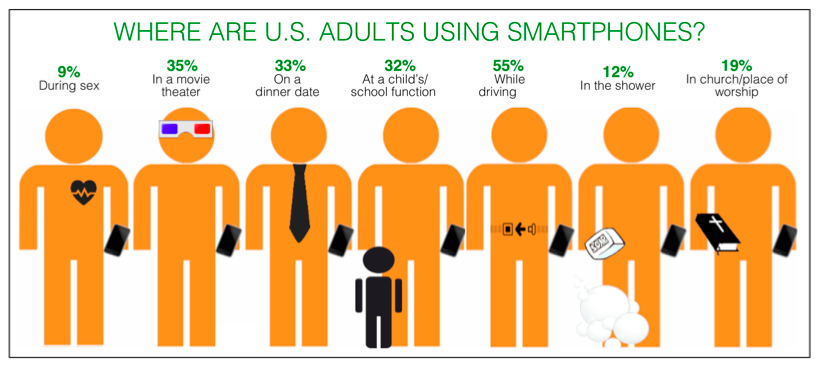 Not really. But it seems like it. I know my american friends will complain about Christmas prep starting before Thanksgiving, but here in Canada, we don't even have that buffer. The last thing to fall is Halloween, which tumbles before our eyes, and is replaced with Santa and tinsel at the beginning of November. Now, I'm not going to call Christmas a selfish hog of a holiday, but I would like to remind you that with the start of Christmas prep at the beginning of November, and the last of the boxing day sales and such wrapping up in January, this glutton of a holiday has taken up, ready for it, almost a quarter of the year. No jokes.
Not really. But it seems like it. I know my american friends will complain about Christmas prep starting before Thanksgiving, but here in Canada, we don't even have that buffer. The last thing to fall is Halloween, which tumbles before our eyes, and is replaced with Santa and tinsel at the beginning of November. Now, I'm not going to call Christmas a selfish hog of a holiday, but I would like to remind you that with the start of Christmas prep at the beginning of November, and the last of the boxing day sales and such wrapping up in January, this glutton of a holiday has taken up, ready for it, almost a quarter of the year. No jokes. But like most other reasonable people, my problem isn't that the Christmas prep is starting early, but that it isn't prep. Not properly, anyway. The thing about modern life (and I do mean modern life) is that there is pretty much always a jarring shift in tone. Between everything. Have you ever noticed that the commercials are always much louder than the show you are watching? Or that when a show ends, it is followed up by something vastly different than it? There is no bridging, no shift in tone between the two. It just goes from one to the other. In our lives these days, there's nothing even vaguely like downtime. It's just thrill of the minute from one moment to the next. Rapid succession.
The shift from Halloween to Christmas is perhaps one of the most jarring in terms of tone, seeing as how it moves from ghosts and skeletons to santa and elves with absolutely zero transition. But that occasion should give us some time to think and to reflect on the concept of preparation. It's not just holidays that we're bad at doing transitions with, it's everything. We move so quickly, and transit is so rapid, that there's no real time to shift in tone or thought between the things we do.
Now, as you heard on Sunday, part of my problem was that the preicope cut off too early. It didn't go all the way it should have, and it dropped the last bit. Here it is, for our better understanding of everything:
50 Now there was a man named Joseph, a member of the Council, a good and upright man, 51 who had not consented to their decision and action. He came from the Judean town of Arimathea, and he himself was waiting for the kingdom of God. 52 Going to Pilate, he asked for Jesus’ body. 53 Then he took it down, wrapped it in linen cloth and placed it in a tomb cut in the rock, one in which no one had yet been laid. 54 It was Preparation Day, and the Sabbath was about to begin.
55 The women who had come with Jesus from Galilee followed Joseph and saw the tomb and how his body was laid in it. 56 Then they went home and prepared spices and perfumes. But they rested on the Sabbath in obedience to the commandment.
Luke 23:50-56
This is key to understanding, advent, lent, and gosh, the Christian life in general. As Christians, we tend to not think too much about the rest of Jesus in the tomb, or the time his disciples spent between his death and
his resurrection. We do the same thing, moving from Good Friday to Easter Sunday, moving with rapidity between the crucifixion and the resurrection. But that day of rest, the one that the women experienced, resting according to the Sabbath, is huge for us, we just rarely think of it!
Consider it this way - when God made heaven, earth, and everything in them, he did so in six days, and he took the seventh day, the sabbath day, to rest. And then he made it a commandment in the book of Exodus, giving the ten commandments with a firm notation of the sabbath. And the people of Israel took that to heart, and began to make the sabbath a huge part of what they did, creating rules about how far to walk, what you could cook, exactly what was or was not work. And it was a mandatory, nation and people wide day of rest for everyone, great to small. And the punishment for breaking the sabbath was dire indeed.
32 While the Israelites were in the wilderness, a man was found gathering wood on the Sabbath day.33 Those who found him gathering wood brought him to Moses and Aaron and the whole assembly,34 and they kept him in custody, because it was not clear what should be done to him. 35 Then theLord said to Moses, “The man must die. The whole assembly must stone him outside the camp.” 36 So the assembly took him outside the camp and stoned him to death, as the Lord commanded Moses.
Numbers 15:32-35
Did you catch that? The deal with breaking the Sabbath rest was so severe that gathering wood, picking up sticks on the Sabbath day was enough to get you killed. Just going out to grab firewood! Nothing major, no massive crime, and yet that man was stoned to death. You see, people got a little strange about the Sabbath as time wore on, and it became more of a curse than a blessing. It became a total disaster, because the blessing became the law, you couldn't do anything whatsoever. Pretty much. Within reason.
With this limitation, we run into some issues that end up being rather major. The time spent in shifting tone is actually vital. You have the sabbath day in place during holy week, and it isn't any accident that the resurrection of Jesus, on the Lord's day, happened on the day after the sabbath. After the day of rest. After the time specifically set aside by God himself to rest.
Here's the deal - without that day in the middle, without that hallowed sabbath rest, then I'm not too sure that Easter would have meant anywhere near as much. Oh sure, had Jesus just hopped back up to life as soon as he was taken off the cross, well, the resurrection would still have taken place, but it certainly would have looked much different. It would have looked different for us. That day of preparation, that sabbath rest, that time of watching and waiting, of getting prepared and resting according to God's laws, that made the entire thing much greater, and still does today.
We need that Sabbath rest more than ever now. We need that time to rest, to be still and know that God is God. We need that because our lives, our days, are crammed full of more stuff than ever before. There's always something going on, there's always the next thing to think about, and rarely any time just getting yourself prepared, ready for the next thing. We never switch off, we never get over ourselves, we never shut down off of anything we're up to, and we move seamlessly from one thing to another, from hit to hit to hit, and we somehow keep on ignoring the simple advice from God to take our rest, and to know that God is God.
 Now, to the thieves on the cross. Yes, that tired old trope. I know they've been discussed to death already, but here's something you might not have heard (unless you were in church on Sunday). The thing about the two thieves, is that they were both asking for the same thing - salvation. They were both saying to Jesus 'save yourself, and save us.' But in two strikingly different ways. The one wanted things done immediately.
Now, to the thieves on the cross. Yes, that tired old trope. I know they've been discussed to death already, but here's something you might not have heard (unless you were in church on Sunday). The thing about the two thieves, is that they were both asking for the same thing - salvation. They were both saying to Jesus 'save yourself, and save us.' But in two strikingly different ways. The one wanted things done immediately.
That's the funny thing about the way your faith works. If you rush it, you will be frustrated. The only way to move fast is to take it slow, there simply is no other way. The only way to progress is to say to God 'thy will be done.' The only way to move rapidly forward is to stop struggling and to let God do what he is going to do. The only way to be perfect is to stop trying, and the only way to be forgiven is to sin boldly. It's a funny old thing, and honestly, it all comes down to one simple thing - grace in Christ. This is why the cross of Christ is foolishness, because it is presented to us all as something we don't do. The sad irony of the thief on the cross was that had he taken his foot off the accelerator, then he would have recieved his reward as well.
The way CS Lewis posits it is that we have to love God for his own sake, without any threats or promises involved. He frames it in the sense of a very rich, very powerful prince, who goes about in his kingdom in disguise. He wants to meet and fall in love with, and woo a lovely lady, but there is a real risk, with him being a well known prince and all, that she will pursue him for his money. So, he goes about in disguise, because the truth of the thing is that if the woman goes for the money, she will get nothing, but if she falls in love with the man, then she will get everything, money, prestige, and the man as well. Seek ye first the kingdom of God and his righteousness, and then all these things will be added unto you. How do you do that? You take that time to prepare, to rest, to listen and to reflect. You behave like the second thief, and say to Jesus 'remember me whenever you come into your kingdom,' and you find with joy that it ends up being today. If you say to Christ 'thy will be done,' you find that your will is being done too. If you stop hiding your sins, you find that they are taken away. And, perhaps most ironically of all, if you focus on thelife to come, you will find that your life here is enriched in many powerful ways.
This is the way of things. Wanting Christ for your own sake will lead to ruin. Loving him for his own sake will bring joy and life. Though this may seem difficult to do, this is why we need that time of rest, stillness, and prepartion. Moving from us to him, as we away the coming of the King into the world.
Blessed Advent, everyone. Let every heart prepare a throne, and every voice a song.
PJ.



